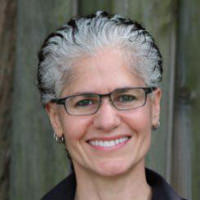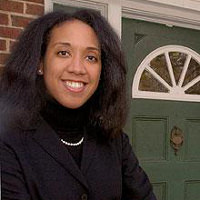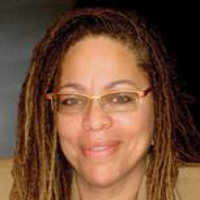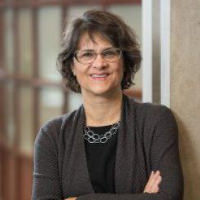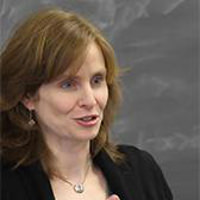Speaker Bios
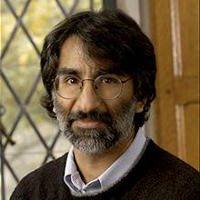 |
Akhil Reed Amar is the Sterling Professor of Law and Political Science at Yale University, where he teaches constitutional law in both Yale College and Yale Law School. Professor Amar is the author of dozens of law review articles and several books, including The Constitution and Criminal Procedure: First Principles, The Bill of Rights: Creation and Reconstruction, America’s Constitution: A Biography, and The Law of the Land: A Grand Tour of our Constitutional Republic. His newest book, The Constitution Today: Timeless Lessons for the Issues of Our Era, was published in September 2016 and was named one of the top ten nonfiction books of the year by Time magazine. In February 2017 he received the American Bar Foundation’s annual Outstanding Scholar Award, and in April 2017 he received the Howard R. Lamar Award for distinguished service to Yale alumni. |
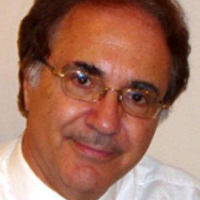 |
Michael Benedict is Emeritus Professor of History at The Ohio State University and visiting scholar at its law school. He is a member of the Society of American Historians, was Parliamentarian of the American Historical Association from 1987 to 2017, and is a past President of the Society for Historians of the Gilded Age and Progressive Era. He has held Mellon, NEH, Fulbright, and many other fellowships. Professor Benedict is an authority in American constitutional history, the history of civil rights and liberties and federalism, and the Civil War and Reconstruction. His The Impeachment and Trial of Andrew Johnson (1973) and A Compromise of Principle: Congressional Republicans and Reconstruction (1975) are standard reading for students of Reconstruction. He is author of The Blessings of Liberty, a leading American constitutional history textbook. |
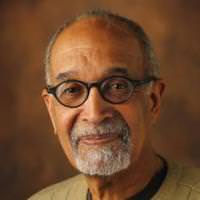 |
Richard Blackett is a historian of the abolitionist movement in the US and particularly its transatlantic connections and the roles African-Americans played in abolition. He is the author of Building an Antislavery Wall: Black Americans in the Atlantic Abolitionist Movement, 1830-1860; Beating Against the Barriers: Biographical Essays in Nineteenth-Century Afro-American History; Thomas Morris Chester: Black Civil War Correspondent ; Divided Hearts: Britain and the American Civil War; Making Freedom: The Underground Railroad and the Politics of Slavery; editor, Running A Thousand Miles for Freedom: The Escape of William and Ellen Craft from Slavery. “The Captive’s Quest for Freedom: Fugitive Slaves, the 1850 Fugitive Slave Law, and the Politics of Slavery” will be published spring 2018. Blackett taught previously at the University of Pittsburgh (1971-85), Indiana University (1985-1996); University of Houston (1996-2002), and Oxford University (2013-2014). He now acts as the Andrew Jackson Professor of History at Vanderbilt University. |
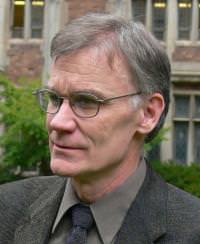 |
David W. Blight is Class of 1954 Professor of American History at Yale University. Since June, 2004, he has served as Director, succeeding David Brion Davis, of the Gilder Lehrman Center for the Study of Slavery, Resistance, and Abolition at Yale. He has also taught at Amherst College and Harvard University, and was a high school teacher in his hometown, Flint, Michigan. Blight lectures widely on the Civil War, Reconstruction, and problems in American historical memory. He is the author of numerous books, including Race and Reunion: The Civil War in American Memory (Harvard University Press, 2001), which received eight book awards. Other publications include American Oracle: The Civil War in the Civil Rights Era (Harvard University Press, 2011) and A Slave No More: Two Men Who Escaped to Freedom, Including their Narratives of Emancipation (Harcourt, 2007). His biography of Frederick Douglass will be published by Simon and Schuster in 2018. |
|
|
Christopher Bonner specializes in African American history, particularly black protest in the early United States. He is at work on a manuscript titled “The Problem of Citizenship,” which examines black activists’ efforts to construct American citizenship before the passage of the Fourteenth Amendment. He teaches courses in African American politics and culture, slavery and emancipation, and race and ethnicity in early America. Originally from Chesapeake, VA, he earned his B.A. from Howard University and Ph.D. from Yale University. |
|
|
Pamela Brandwein is Professor of Political Science at the University of Michigan. Her research focuses on American constitutional development, antislavery politics, and American political thought. Her work is united by an interest in the political and constitutional languages of the nineteenth century, and her major projects have traced discourses about slavery, race, labor, and rights obscured by twentieth century conventions. Her most recent book, Rethinking the Judicial Settlement of Reconstruction (Cambridge, 2011), revises conventional wisdom about the Supreme Court’s “state action” doctrine, commonly viewed as an abandonment of blacks to Southern home rule. Unveiling a lost jurisprudence of rights that provided protections for black physical safety and black voting, even as it left public accommodation rights undefended, this law-and-politics treatment of the Reconstruction era unites new political history, close legal reading, and the study of political institutions. Currently, she is working on a project about antislavery and capitalism in the United States. |
|
|
Kellie Carter Jackson is a 19th century historian in the Department of Africana Studies at Wellesley College. Her upcoming book, “Force & Freedom: Black Abolitionists and the Politics of Violence,” examines the conditions that led some black abolitionists to believe slavery might only be abolished by violent force. Carter Jackson is co-editor of Reconsidering Roots: Race, Politics, & Memory. Carter Jackson’s essays have been featured in The Atlantic, Transition Magazine, The Conversation, Boston’s NPR Blog Cognoscenti, AAIHS’s Black Perspectives blog, and Quartz, where her article was named one of the top 13 essays of 2014. She has also been interviewed for the New York Times, Al Jazeera International, Slate, The Telegraph, CBC, and Radio One. Carter Jackson also sits on the board for Transition Magazine where other essays of hers have been published. |
|
|
Nicole Etcheson is the Alexander M.Bracken Professor of History at Ball State University. Etcheson came to Ball State University with twelve years organizing for National History Day at the local and state level, as well as fourteen years of experience in teaching Etcheson’s book, A Generation at War: The Civil War Era in a Northern Community (2011),won the 2012 Avery O. Craven Award from the Organization of American Historians for most original book on the Civil War are and the 2012 Best Nonfiction Book of Indiana State Library. In addition to her books, Etcheson is also the author of numerous articles in professional journals as well as frequent presenter at historical conference. |
|
|
Joanne B. Freeman, Professor of History at Yale University, specializes in the politics and political culture of the revolutionary and early national periods of American History. Her most recent book, Affairs of Honor: National Politics in the New Republic, won the Best Book award from the Society of Historians of the Early American Republic, and her edited volume, Alexander Hamilton: Writings was one of the Atlantic Monthly’s “best books” of 2001. Her current project, “The Field of Blood: Congressional Violence in Antebellum America,” explores physical violence in the U.S. Congress between 1830 and the Civil War. Freeman’s articles have appeared in a wide range of academic journals including William and Mary Quarterly, Journal of the Early Republic, Journal of Policy History, and Yale Law Journal, among others. |
|
|
Andra Gillespie, associate professor of political science, specializes in political mobilization and race, as well as competition between minority groups. Her current research focuses on the political leadership of the post-civil rights generation. She recently completed her forthcoming book, Race and the Obama Administration which analyzes Barack Obama’s performance on substantive and symbolic issues of importance to African Americans and compares his performance on racial issues to other recent presidents. Her first monograph, The New Black Politician: Cory Booker, Newark and Post-Racial America, examines the decade-long evolution of African-American politics in New Jersey’s largest city and challenges students of black politics to revise their understanding of the connection between racial solidarity, vote choice and policy preferences. She is also the editor of Whose Black Politics? Cases in Post-Racial Black Leadership. |
|
|
Nicholas Guyatt is a Reader in North American History at the University of Cambridge. He is the author of Providence and the Invention of the United States and, most recently, Bind Us Apart: How Enlightened Americans Invented Racial Segregation. He has written about American history for The Nation magazine, the Times Literary Supplement, the Guardian, and the London Review of Books. Currently he is editing the Oxford Illustrated History of the United States, and writing a book about race and the Dartmoor Rebellion of 1815. |
|
|
Cheryl I. Harris is the Rosalinde and Arthur Gilbert Foundation Chair in Civil Rights and Civil Liberties at UCLA School of Law. Professor Harris has produced groundbreaking scholarship in the field of Critical Race Theory, including “Whiteness as Property” (Harvard Law Review), as well as a body of work that engages the way the law shapes and is shaped by race. These include how race affects the understanding and interpretation of significant events like Hurricane Katrina (“Whitewashing Race” in California Law Review), admissions policies (“The New Racial Preferences” in California Law Review, with Carbado), and anti-discrimination law (“Reading Ricci: Whitening Discrimination, Raceing Test Fairness” in UCLA Law Review, with West-Faulcon). Currently, she is working on a revision of Derrick Bell’s classic text, Race, Racism and American Law (with Justin Hansford). She is presently faculty director for the Critical Race Studies Program at UCLA Law School and is past recipient of the ACLU Foundation of Southern California’s Distinguished Professor Award for Civil Rights Education. |
|
|
Martha S. Jones is the SOBA (Society of Black Alumni) Presidential Professor of History at Johns Hopkins University. Her scholarly interests include the history of race, citizenship, slavery, and the rights of women in the United States. Prior to teaching, she was a public interest litigator in New York City and a Charles H. Revson Fellow on the Future of the City of New York at Columbia University. Professor Jones is the author of All Bound Up Together: The Woman Question in African American Public Culture, 1830-1900 (2007), co-editor of Toward an Intellectual History of Black Women (2015), and author of the forthcoming “Birthright Citizens: A History of Race and Rights in Antebellum American.” |
 |
Matt Karp is a historian of the U.S. Civil War era and its connections with the broader nineteenth-century world. He teaches at Princeton University. Matt is author of This Vast Southern Empire: Slaveholders at the Helm of American Foreign Policy, published by Harvard University Press. The book explores the relationship between American slavery and American power in the decades before the Civil War. In 2017, This Vast Southern Empire was awarded the Stuart L. Bernath Book Prize (Society for Historians of Foreign Relations), the James Broussard Best First Book Prize (Society for the Historians of the Early American Republic), the North Jersey Civil War Roundtable Book Award, and was a finalist for the Harriet Tubman Prize. Matt holds a Ph.D. in History from the University of Pennsylvania (2011). Matt is a graduate of Amherst College (2003), where he majored in History. |
|
|
Sarah Kendzior is a writer best known for her critical take on the “prestige economy,” her reporting on St. Louis, her coverage of the 2016 election, and her academic research on authoritarian states in Central Asia. Her best-selling essay collection, The View From Flyover Country, was published in 2015. She is currently an op-ed columnist for the Globe and Mail. She also is the US correspondent for the Dutch news outlet De Correspondent. Previously she was an op-ed columnist for Al Jazeera English, where she wrote about exploitation, the diminishing opportunities of America’s youth, and gentrification. Her April 2013 article “The Wrong Kind of Caucasian” is the most popular AJE op-ed of all time. In addition to working as a journalist, she is a researcher and consultant. She has a PhD in anthropology from Washington University in Saint Louis and an MA in Central Eurasian Studies from Indiana University. |
|
|
Jill Lepore is the David Woods Kemper Professor of American History at Harvard University. She is also a staff writer at the New Yorker, where she writes about history, politics, and the law. Much of Lepore’s scholarship explores absences and asymmetries of evidence in the historical record, with a particular emphasis on the histories and technologies of evidence and of privacy. Her books include The Secret History of Wonder Woman, winner of the American History Book Prize; Book of Ages, a finalist for the National Book Award; New York Burning, a finalist for the Pultizer Prize; and The Name of War, winner of the Bancroft Prize. Her latest book, a single-volume history of the United States, will be published in 2018. |
|
|
Josh Lynn is a Visiting Scholar and Post-Doctoral Associate at the Yale Center for the Study of Representative Institutions and a Lecturer in the History Department at Yale University. Josh previously taught at the University of North Carolina at Chapel Hill, where he completed his PhD. He researches nineteenth-century politics, with particular attention to the intersection of race and gender with political thought and political culture. His first book, Preserving the White Man’s Republic: Jacksonian Democracy, Race, and the Transformation of American Conservatism, will be published by University of Virginia Press. He is currently working on a book project entitled “The Black Douglass and the White Douglas,” which uses the rivalry between Frederick Douglass and Stephen A. Douglas to explore race and democratic citizenship in the Civil War era. |
|
|
Kenneth W. Mack is the inaugural Lawrence D. Biele Professor of Law and Affiliate Professor of History at Harvard University. He is also the co-faculty leader of the Harvard Law School Program on Law and History. His 2012 book, Representing the Race: The Creation of the Civil Rights Lawyer, was a Washington Post Best Book of the Year, a National Book Festival Selection, was awarded honorable mention for the J. Willard Hurst Award by the Law and Society Association, and was a finalist for the Julia Ward Howe Book Award. In 2016-17, he was a Radcliffe Fellow at the Radcliffe Institute for Advanced Study, Harvard University. In 2007, he was named a Fletcher Fellow by the Fletcher Foundation. He is currently working on a book project that examines the social and political history of race and political economy in the United States after 1975. |
|
|
Kate Masur is a professor at Northwestern University whose scholarship focuses on how Americans grappled with questions of race and equality after the abolition of slavery in both the North and the South. She is author of An Example for All the Land: Emancipation and the Struggle over Equality in Washington, D.C. and numerous articles on emancipation and black politics in the Civil War era. She is also co-editor (with Gregory Downs) of The World the Civil War Made, a collection of essays that charts new directions in the study of the post-Civil War period. She recently wrote the introduction to a new edition of They Knew Lincoln by John E. Washington, a largely forgotten 1942 classic in Lincoln studies and African American history that Oxford University Press will republish this winter. She is currently writing a book about personal liberty, police powers, and the origins of the 14th Amendment. |
|
|
Joe Murphy Joe Murphy is a historian of nineteenth-century America specializing in antislavery politics and the origins of the Civil War. He is at work on a manuscript titled “Neither a Slave nor a King: Political Abolitionists and the Rise of Antislavery Nationalism,” which explains how the sectional crisis over slavery – itself a process of nation-state formation – pushed political abolitionists and their allies toward a vision of the United States as a genuine nation-state committed to uniform freedom. Murphy has served as an adjunct instructor at Hunter College, John Jay College of Criminal Justice, and the Gilder Lehrman Institute of American History, all located in New York City. He recently served as Interim Associate Director of the Leon Levy Center for Biography, and for three years was administrator of the Gotham Center for New York City History. Murphy is the 2017-2018 National Endowment for the Humanities Fellow at the New-York Historical Society. |
 |
James Oakes is an American historian, and Distinguished Professor of History and Graduate Graduate School Humanities Professor at the Graduate Center of the City University of New York where he teaches history courses on the American Civil War and Reconstruction, Slavery, the Old South, Abolitionism and U.S. and World History. He taught previously at Princeton University and Northwestern University. Oaks is also the author of several acclaimed books on slavery and the Civil War. His history of emancipation, Freedom National, won the Lincoln Prize and was long-listed for the National Book Award. |
 |
Dean Robinson is a specialist with expertise on both black nationalism, as well as the political and social determinants of health inequalities in the United States and elsewhere. He has ongoing research on the positive impact of the civil rights movement on black health, and the deleterious impact of the Reagan Revolution on the health of black Americans. He is also working comparatively on the question of minority political power and health inequalities in the US, Australia and New Zealand. Another project underway is a comparative analysis of Black Lives Matter versus the Black Power Movement. Robinson received his PhD in political scene from Yale University in 1995. He received post-doctoral training in social epidemiology at the Harvard TH Chan School of Public Health. He is author of Black Nationalism in American Politics and Thought and co-author of “Health Disparities by Race and Class: Why Both Matter” (Health Affairs). In 2016, Robinson was named the Terrence Murray Commonwealth Honors College Professor at University Massachusetts Amherst. |
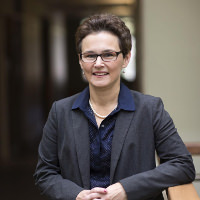 |
Elizabeth R. Varon is Associate Director of the John L. Nau III Center for Civil War History and Langbourne M. Williams Professor of American History at the University of Virginia. Varon’s books include Southern Lady, Yankee Spy: The True Story of Elizabeth Van Lew, A Union Agent in the Heart of the Confederacy, which won the Lillian Smith Award of the Southern Regional Council and was named one of the “Five Best” books on the “Civil War away from the Battlefield” in the Wall Street Journal; and Appomattox: Victory, Defeat, and Freedom at the End of the Civil War, which won the 2014 Library of Virginia Literary Award for Nonfiction and was named one of National Public Radio’s “Six Civil War Books to Read Now.” Her next book, “Armies of Deliverance: A New History of the Civil War,” is forthcoming with Oxford University Press in 2018. |
 |
Sean Wilentz studies U.S. social and political history. Chants Democratic (1984), shows how the working class emerged in New York City and examines the changes in politics and political thought that came with it. Professor Wilentz is also the coauthor and coeditor of The Key of Liberty (1993) and the editor of several other books, including Major Problems in the Early Republic (1992) and The Rose and the Briar (2004, Greil Marcus coeditor), a collection of historical essays and artistic creations inspired by American ballads. His major work to date, The Rise of American Democracy: Jefferson to Lincoln (2005), was awarded the Bancroft Prize and was a finalist for the Pulitzer Prize. A contributor and contributing editor to The New Republic, and a member of the editorial boards of Dissent and Democracy, Professor Wilentz lectures frequently and has written some three hundred articles, reviews, and op-ed pieces. |


